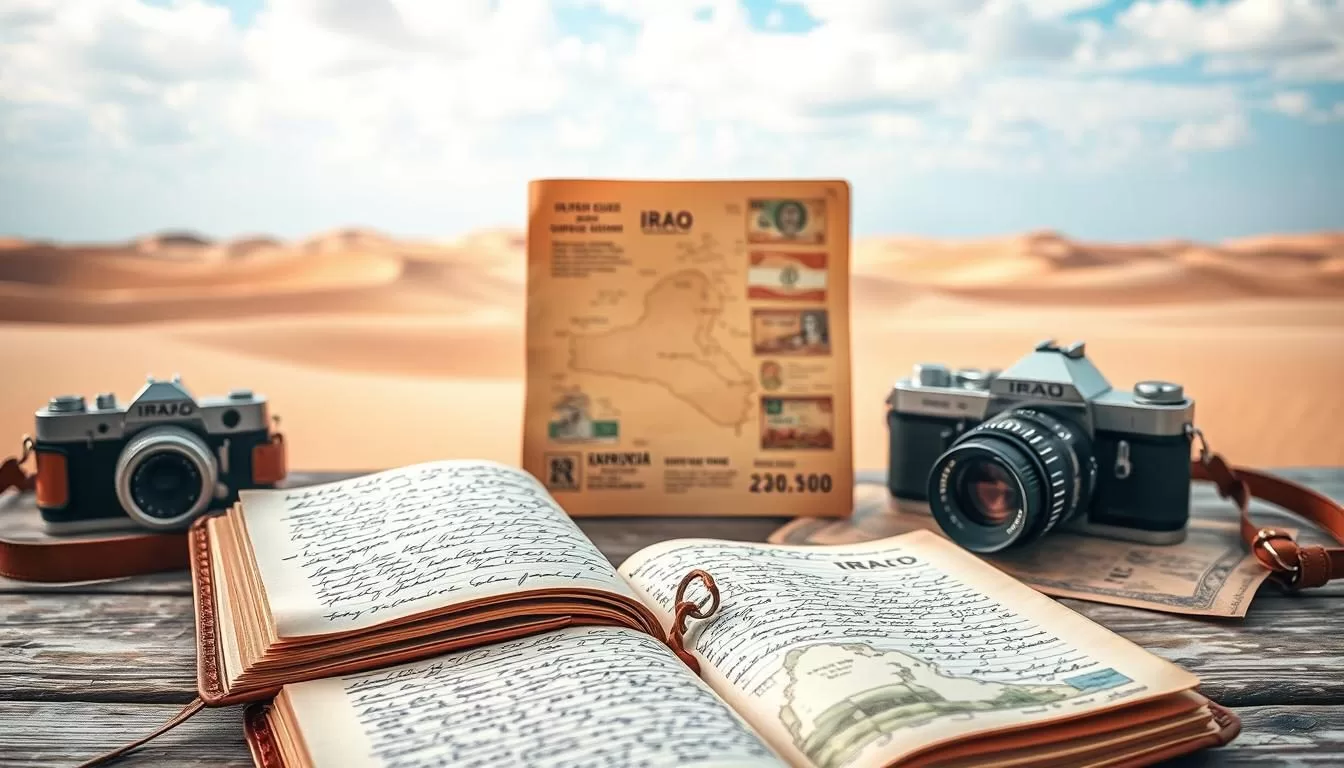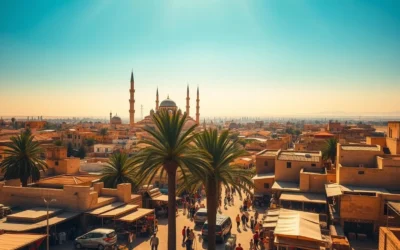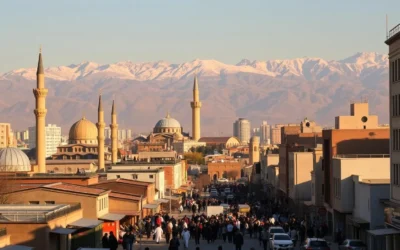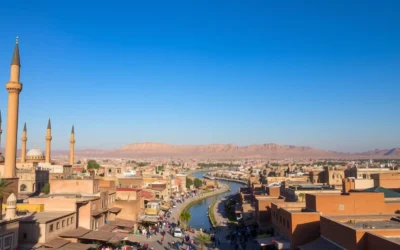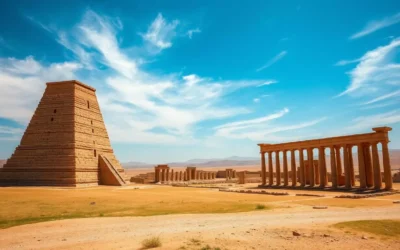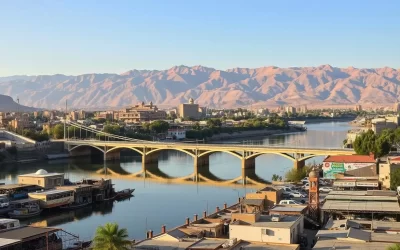✓ Accommodations✓ Flights✓ Rental Cars
Planning a trip involves more than just packing your bags. One of the most important aspects is understanding how to manage your money effectively. This ensures a smooth and stress-free experience, especially when navigating a new environment.
In many regions, the local currency plays a key role in daily transactions. For instance, the Iraqi dinar is the primary form of payment in its respective area. Knowing how to handle this currency can make a significant difference during your travels.
This travel guide aims to provide you with essential insights into financial planning and payment methods. Whether you’re exploring bustling cities or remote areas, being prepared will help you make the most of your journey.
Overview of Iraq’s Vibrant Travel Landscape
Exploring a new destination offers a chance to uncover its unique charm and history. This country is a blend of ancient traditions and modern developments, creating a fascinating travel experience. From bustling cities to serene landscapes, there’s something for every traveler.
Baghdad, the capital, is a hub of culture and history. Here, you’ll find iconic landmarks like the Al-Mustansiriya School and vibrant bazaars. The city seamlessly combines its rich past with contemporary life, offering a dynamic atmosphere for visitors.
Other key destinations include Erbil, known for its ancient citadel, and Basra, a gateway to the Shatt al-Arab waterway. Each city has its own character, reflecting the diverse heritage of this country.
For those seeking spiritual experiences, Karbala and Najaf are must-visit sites. These cities are central to Shia Islam and host millions of pilgrims annually. In 2019, over 20 million pilgrims participated in the Arbaeen pilgrimage to Karbala, making it the world’s largest pilgrimage event.
Beyond the urban centers, Iraq’s natural beauty is equally captivating. The marshlands of the south and the mountains of Kurdistan offer stunning landscapes and unique ecosystems. These areas provide a peaceful retreat from the hustle and bustle of the cities.
To help you plan your trip, here’s a quick overview of accommodation options in key cities:
| City | Hotel | Price (IQD) |
|---|---|---|
| Baghdad | Diwan Hotel | 30,000 per night |
| Mosul | Karamanah Hotel | 25,000 per night |
| Karbala | Janat Al Kawther Hotel | 32,500 per night |
| Najaf | Al Maqam Hotel | 32,500 per night |
Whether you’re drawn to history, culture, or nature, this country offers endless opportunities for exploration. Its vibrant cities and diverse landscapes make it a truly unique destination.
Understand the Economy: Iraqi Dinar and Exchange Rates
Navigating a new country’s financial system can be both exciting and challenging. The Iraqi dinar (IQD) is the official currency, and understanding its structure is essential for smooth transactions. The IQD has undergone significant changes, from Saddam-era notes to modern issues, reflecting the country’s economic evolution.
Overview of the Currency System
The IQD is central to all financial transactions in the region. Its value has seen dramatic shifts over the years. For instance, it was valued at $3 before the 1991 Persian Gulf War but fell to less than a penny by 1993. Inflation peaked at over 448% in 1994, further impacting its stability.
In 2020, the government devalued the dinar by over 20%, aiming to stabilize the economy. This move highlights the importance of staying updated on exchange rates before your trip. Brokers often charge a premium of 25% to 30% over the official rate, so planning ahead can save you money.
Current Exchange Rates and Trends
As of the latest updates, the exchange rate for USD to IQD is approximately 1,460 IQD for 1 USD. However, rates can vary depending on the method of exchange. Online services often provide better rates than traditional banks, making them a preferred choice for travelers.
Economic factors like inflation, currently around 6% annually, influence these rates. Iraq’s heavy reliance on oil exports, which account for 90% of government revenue, also plays a role. Understanding these dynamics helps you make informed decisions when converting your money.
Here are some tips to manage your finances effectively:
- Check current exchange rates before making transactions.
- Use online services for better rates and lower fees.
- Be aware of potential broker premiums and transaction costs.
By staying informed, you can navigate the financial landscape with confidence and make the most of your journey.
Mastering Local Payments and Transaction Tips
Managing your finances while traveling can make or break your experience. Understanding the way locals handle payments is essential for a smooth journey. Here’s how you can navigate transactions confidently and securely.
Cash is still king in many places, so always carry enough local currency. However, using a card for larger purchases can be more convenient. Many businesses accept major credit cards, but it’s wise to confirm beforehand.
To avoid common pitfalls, double-check exchange rates before converting money. Online tools like XE Currency Converter provide real-time data, ensuring you get the best rates. Be cautious of brokers who charge high premiums, as this can add unnecessary costs.
Security is crucial when handling money abroad. Keep your cash and cards in separate places to minimize risks. Use ATMs in well-lit, secure locations, and always shield your PIN.
Preferred payment methods vary by region. In some areas, mobile payments are gaining popularity, while others still rely on cash. Research local trends to stay ahead.
Here are some actionable tips to manage your money effectively:
- Carry a mix of cash and cards for flexibility.
- Use trusted online converters for accurate exchange rates.
- Avoid displaying large amounts of cash in public.
- Notify your bank of your travel plans to prevent card issues.
By following these strategies, you can handle local payments with ease and focus on enjoying your trip.
Iraq: Ultimate Travelers Guide to Currencies & Payments
Making the most of your travel experience involves smart planning and budgeting. Understanding how time and cost influence your stay can help you enjoy your trip without financial stress. Here’s how to make every day count while staying within your budget.
Accommodation is often the biggest expense. Choosing the right hotel can save you money without compromising comfort. Look for options that include amenities like free breakfast or Wi-Fi. These small perks can add up over time.
Timing your activities can also stretch your budget. Visiting popular attractions early in the day or during off-peak hours often means fewer crowds and lower costs. For example, entrance fees to museums or landmarks may be discounted during certain times.
Here’s a quick comparison of accommodation costs in key cities:
| City | Hotel | Price (IQD) |
|---|---|---|
| Baghdad | Diwan Hotel | 30,000 per night |
| Mosul | Karamanah Hotel | 25,000 per night |
| Karbala | Janat Al Kawther Hotel | 32,500 per night |
| Najaf | Al Maqam Hotel | 32,500 per night |
When selecting a hotel, consider its location. Staying near public transport or major attractions can save you time and money on commuting. For instance, a taxi ride from Baghdad International Airport to the city center costs around 55,000 IQD.
Finally, plan your itinerary to balance sightseeing and relaxation. Overloading your day with activities can lead to burnout. Instead, prioritize must-see spots and leave room for spontaneous discoveries.
By following these tips, you can enjoy a well-planned trip that maximizes both your time and budget. Happy travels!
Visa Requirements and Entry Information
Understanding entry requirements is a crucial step in planning your journey. A visa is mandatory for most travelers, and your passport must be valid for at least six months beyond your arrival date. Additionally, ensure it has at least one blank page for stamps.
For those arriving by air, a visa on arrival is available for citizens of the EU, US, UK, and several other countries, costing $75. However, all other nationalities must apply in advance through the e-visa portal, which requires at least 24 hours of processing.
If you plan to visit the Kurdistan region, note that a separate Kurdistan visa is required. This cannot be obtained through Iraqi embassies; instead, you must contact Kurdistan representation directly.
Here’s a quick overview of key entry requirements:
| Document | Details |
|---|---|
| Passport | Valid for 6+ months, 1 blank page |
| Visa | $160, valid for 60 days |
| Kurdistan Visa | Separate application required |
Upon arrival, you must declare any local currency over 200,000 IQD or foreign currency exceeding $10,000. Failure to comply can lead to fines or legal issues.
Lastly, always carry your passport or residence permit, as ID checks are common at checkpoints. By preparing these documents in advance, you can ensure a smooth and stress-free entry.
Banking Services and Cash Management Strategies
Managing your money effectively while traveling ensures a stress-free experience. In the federal region, banking services are evolving to meet rising customer expectations. Financial institutions are leveraging technology to reduce payment fees and enhance transaction speed.
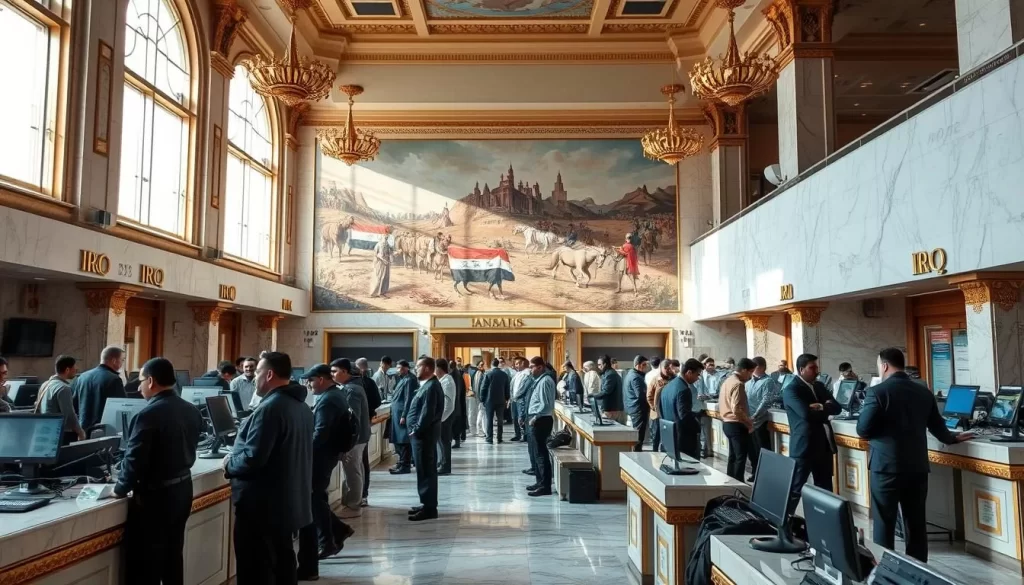
For travelers, understanding local banking options is crucial. Most banks in the region offer services tailored to both residents and visitors. However, the level of access varies. For instance, while 90% of adults in Iran have bank accounts, this number drops significantly in other areas.
Here’s a practical guide to managing cash effectively:
- Carry a mix of cash and cards for flexibility.
- Use trusted online converters for accurate exchange rates.
- Notify your bank of your travel plans to avoid card issues.
When choosing a bank, look for institutions with a strong reputation. JPMorgan, for example, is recognized for its high-quality foreign exchange services. This ensures you get competitive rates and reliable support.
For persons unfamiliar with the region, it’s wise to seek financial advice from trusted sources. Local banks often provide guidance on managing transactions safely. Additionally, platforms like Xpedite offer low-cost cross-currency payment solutions, making international transfers more affordable.
By following these strategies, you can confidently access cash, make payments, and manage your budget abroad. Staying informed and prepared is the key to a smooth financial experience in the federal region.
Using ATMs and Accepting Credit Cards in Iraq
Handling your finances efficiently while abroad can enhance your travel experience. Knowing where to find reliable ATMs and understanding local payment preferences are key to staying prepared. This section provides practical tips to help you navigate these challenges with ease.
Where to Find Reliable ATMs
ATMs are widely available in high-traffic areas like airports and shopping centers. These locations are often the most secure and convenient for withdrawing cash. For instance, Baghdad International Airport has multiple ATMs that accept international cards.
When using ATMs, always choose those inside banks or well-lit, secure areas. This minimizes the risk of fraud or theft. Additionally, notify your bank of your travel plans to avoid any issues with card access.
Tips for Cash-Only Transactions
Many establishments prefer cash, especially in smaller towns or rural areas. Plan your cash needs per night to avoid running out unexpectedly. For example, budgeting around 30,000 IQD for a room and meals can help you stay on track.
Carry smaller denominations for easier transactions, and keep your cash in multiple secure places. This ensures you’re prepared for any situation while minimizing risks.
By following these tips, you can confidently manage your funds and focus on enjoying your journey.
Local Transportation and Payment Methods
Getting around a new place can be both exciting and a bit overwhelming. Understanding your transportation options is key to a smooth and enjoyable trip. In many areas, shared taxis and local buses are popular choices for getting from one place to another.
Shared taxis are a common and affordable way to travel. These vehicles often follow set routes and pick up multiple passengers along the way. Negotiating fares is part of the experience, so don’t hesitate to ask locals for guidance.
If you prefer more privacy, hiring a taxi is another option. While it’s more expensive, it offers flexibility and convenience. Always agree on the fare before starting your journey to avoid surprises.
For budget-conscious travelers, public transport like buses is a reliable choice. These services are widely available in urban areas and are a great way to experience local life. However, schedules can be unpredictable, so plan accordingly.
Here are some tips to make your transportation experience smoother:
- Carry small bills for easier fare payments.
- Learn basic phrases to communicate with drivers.
- Ask locals for advice on the best routes and rates.
By understanding these options, you can move around confidently and make the most of your journey. Whether you choose a shared taxi, a private taxi, or public transport, being prepared ensures a stress-free experience.
Safety, Security, and Local Tips: What You Need to Know
Ensuring your safety while traveling is a top priority, especially in regions with heightened security measures. Being prepared and informed can make your journey smoother and more enjoyable. Here’s what you need to know to stay safe and respectful during your visit.
Staying Safe in High-Security Zones
When traveling through areas with increased security, it’s essential to be aware of your surroundings. Checkpoints are common, and knowing how to navigate them is crucial. Always carry your identification and be prepared for routine checks. Staying calm and cooperative can help you pass through smoothly.
Having a reliable car service can be beneficial in these zones. Professional drivers are familiar with local routes and can help you avoid potential risks. This is especially important if you’re a tourist unfamiliar with the area.
Understanding Local Etiquette
Respecting local customs and etiquette is key to a positive experience. Dress modestly, especially in religious or conservative areas. Avoid discussing sensitive topics like politics or religion unless you’re well-informed and respectful.
Learning a few basic phrases in the local language can go a long way. It shows respect and can help you connect with locals. Simple gestures like greeting people politely can make a lot of difference.
Here are some actionable tips to ensure your safety and respect local customs:
- Always carry your ID and necessary documents.
- Use a trusted car service for transportation.
- Dress modestly and avoid sensitive topics.
- Learn basic local phrases to show respect.
By following these guidelines, you can navigate high-security zones confidently and enjoy a respectful visit. For more detailed advice, check out this guide on traveling in Iraq.
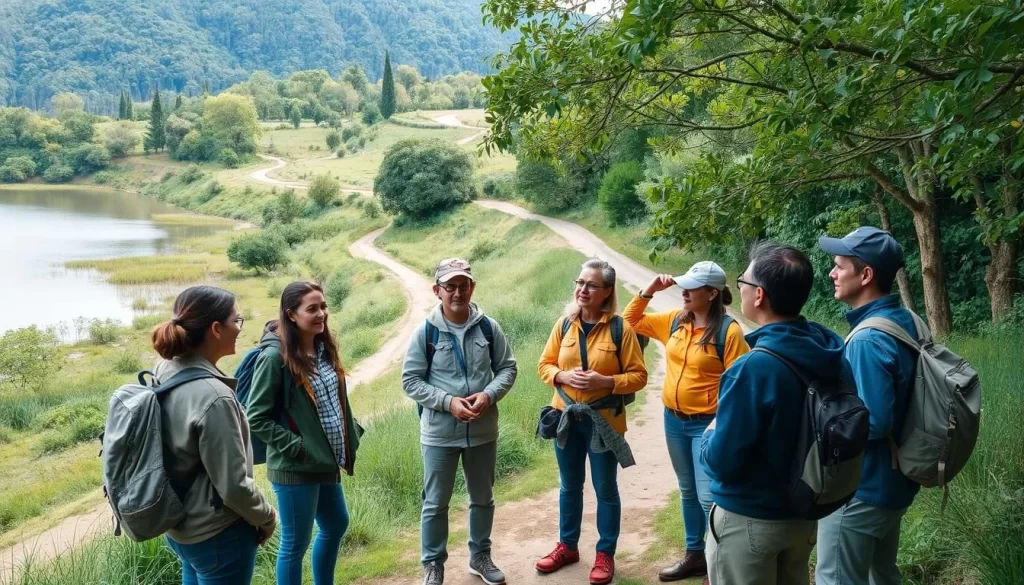
| Safety Tip | Details |
|---|---|
| Checkpoints | Carry ID, stay calm, and cooperate with officials. |
| Car Service | Use trusted drivers familiar with local routes. |
| Local Etiquette | Dress modestly and avoid sensitive topics. |
| Language | Learn basic phrases to show respect. |
An In-Depth Look at the Iraqi Kurdistan Region
Discover the autonomous charm of Iraqi Kurdistan, a place rich in culture and history. This region stands apart with its unique identity, blending ancient traditions with modern vibrancy. From its bustling cities to serene landscapes, it offers a travel experience unlike any other.
Erbil, the capital, is a hub of activity and history. The city’s population grew from 500,000 in 2004 to 2 million in 2012, reflecting its rapid development. Slemani and Duhok are equally captivating, with populations of 1.9 million and 1.3 million respectively. Each city has its own character, showcasing the region’s diverse heritage.
The locals are known for their warmth and hospitality. Many travelers find that the people here quickly become their friend, offering insider tips and local insights. This welcoming atmosphere makes exploring the region even more enjoyable.
Politically, Iraqi Kurdistan operates as an autonomous region within Iraq. This independence has allowed it to develop its own infrastructure and economy. Over $30 billion has been invested in its growth, making it a thriving place for both residents and visitors.
Here’s a quick overview of key cities and their highlights:
| City | Population | Notable Feature |
|---|---|---|
| Erbil | 2 million | Ancient Citadel |
| Slemani | 1.9 million | Cultural Museums |
| Duhok | 1.3 million | Mountain Landscapes |
Whether you’re drawn to its history, culture, or natural beauty, Iraqi Kurdistan offers something for everyone. Its unique blend of tradition and modernity makes it a must-visit place.
Explore Must-See Attractions in Federal Iraq
Federal Iraq is a treasure trove of historical and spiritual landmarks. From ancient mosques to revered shrines, this region offers a unique blend of faith and history. These sites are not just architectural marvels but also centers of deep cultural significance.
One of the most iconic sites is the Imam Ali Shrine in Najaf. Millions of pilgrims visit this sacred site annually, making it a cornerstone of Shia Islam. The shrine’s intricate design and spiritual atmosphere leave a lasting impression on visitors.
Another must-see is the Grand Mosque of Samarra, known for its towering 52-meter Malwiya Minaret. This architectural masterpiece dates back to the 9th century and stands as a testament to Iraq’s rich Islamic heritage.
For those interested in history, the Ziggurat of Ur near Nasiriyah is a must-visit. Built around 2200 BC, it’s one of the oldest structures in the world. Its ancient design and historical significance make it a fascinating stop.
These sites are more than just tourist attractions. They offer a deeper understanding of Iraq’s cultural and spiritual identity. Whether you’re drawn to their history or their spiritual energy, visiting these landmarks is essential for a complete experience.
For more detailed insights, check out this travel guide to Federal Iraq. It provides practical tips and highlights key destinations to help you plan your journey.
Discovering Cultural Souvenirs and Currency Collectibles
Bringing home a piece of your journey makes every trip unforgettable. Cultural souvenirs are more than just keepsakes; they tell stories of the places you’ve explored. From intricate crafts to historical currency, these items reflect the rich heritage of the region.
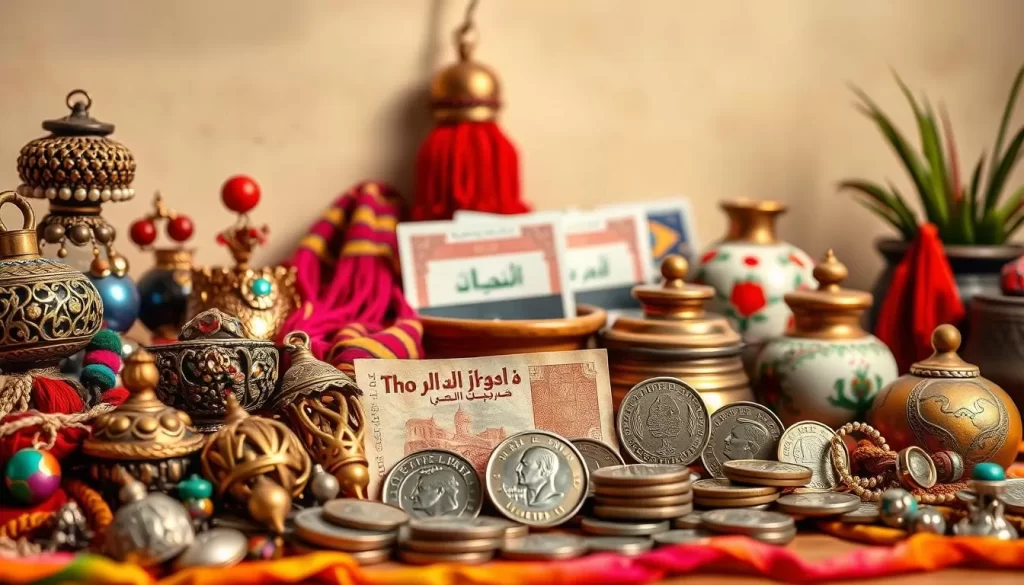
One of the most fascinating collectibles is the Saddam dinar, a piece of history that captures a unique era. These notes are often found in local markets, where experienced taxi drivers can guide you to the best sites for authentic finds. Spending an hour browsing these markets can uncover treasures that are both meaningful and affordable.
Local artisans also create beautiful handicrafts, from handwoven rugs to pottery. These items not only support the community but also serve as tangible reminders of your travels. Whether it’s a small trinket or a larger piece, each souvenir carries a memory of the places you’ve visited.
For those interested in currency collectibles, consider exploring markets in bustling cities. These items often come with stories, making them more than just monetary artifacts. For example, you might find notes from different historical periods, each with its own significance.
If you’re looking for more tips on managing your travel budget, check out this guide to currency exchange. It offers practical advice for handling money abroad, ensuring you’re prepared for every aspect of your journey.
By taking home a piece of the region’s culture, you create a lasting connection to your travels. These souvenirs are not just objects; they are stories waiting to be shared.
Crafting Your Travel Budget: Daily and Nightly Cost Insights
Creating a travel budget ensures you can enjoy every moment without financial stress. Planning your expenses for each night and day helps you stay on track and make the most of your journey. Whether you’re exploring bustling cities or serene landscapes, knowing what to expect financially is key.
Start by estimating your daily costs. This includes meals, transportation, and activities. For example, budget travel can start as low as $150 per person per day, covering public transportation, meals, and accommodations. Mid-range options, including guided tours and comfortable lodgings, typically cost around $300 per person per day.
When it comes to overnight stays, the cost varies based on location and amenities. A room with a stunning view might cost more, but it can enhance your experience. For instance, luxury accommodations with private transportation and upscale lodgings start at $500 per person per day.
Here’s a breakdown of typical nightly costs in popular destinations:
| Destination | Accommodation Type | Cost Per Night |
|---|---|---|
| Urban Areas | Budget Hotels | $50 – $100 |
| Coastal Regions | Mid-Range Resorts | $150 – $250 |
| Luxury Spots | High-End Lodges | $300+ |
To balance luxury and affordability, consider prioritizing your spending. Splurge on experiences that matter most, like a room with a breathtaking view, and save on other areas. This approach ensures you get the best value without overspending.
Here are some practical tips to manage your travel funds effectively:
- Track your daily expenses to avoid overspending.
- Use apps to compare accommodation prices and find deals.
- Plan activities in advance to allocate your budget wisely.
By following these strategies, you can craft a budget that allows you to explore freely while staying within your means. A well-planned budget is your key to a seamless and enjoyable travel experience.
Insider Tips for Enjoying Baghdad and Beyond
Exploring a city’s hidden gems can transform your travel experience. Baghdad, with its rich history and vibrant culture, offers countless opportunities to go beyond the usual tourist routes. Whether you’re planning a day trip or diving into the bustling bazaars, these insider tips will help you make the most of your visit.
Visiting Iconic Landmarks and Bustling Bazaars
Start your journey with Baghdad’s iconic landmarks. The Al-Mustansiriya School and the Abbasid Palace are must-see sites that showcase the city’s historical depth. To avoid crowds, plan your visit early in the morning or late afternoon. This timing also offers better lighting for photos and a more relaxed atmosphere.
For a unique experience, explore the city’s bazaars. The Shorja Market is a treasure trove of local crafts, spices, and textiles. Bargaining is part of the fun, so don’t hesitate to negotiate with vendors. Remember, a friendly attitude can go a long way in securing a good deal.
When planning a day trip, consider visiting the nearby city of Samarra. The Grand Mosque and its Malwiya Minaret are architectural marvels worth the journey. Shared taxis are an affordable option, with fares starting at around $9.
Maximizing Your Cultural Experience
Interacting with locals can enrich your visit. Learn a few basic Arabic phrases to show respect and build connections. Many locals are eager to share their culture and may even invite you for tea or a meal.
To save on entrance fees, look for discounted tickets online or inquire about group rates. Some attractions offer free entry during specific times, so do your research beforehand.
Here are some actionable tips to enhance your trip:
- Plan your day trip to include both historical and cultural sites.
- Purchase tickets in advance to avoid long lines.
- Visit bazaars in the late afternoon for a lively atmosphere.
- Carry small bills for easier transactions with vendors.
By following these strategies, you can uncover the heart of Baghdad and create unforgettable memories. Whether you’re exploring ancient landmarks or haggling in bustling markets, these tips will ensure a smooth and enjoyable experience.
Unusual Exchanges: Navigating Informal Money Changers
Navigating informal money exchanges can be a unique challenge for visitors. While they may offer better rates than banks, they come with risks. Understanding when and how to use these services can save you money and ensure a smooth experience.
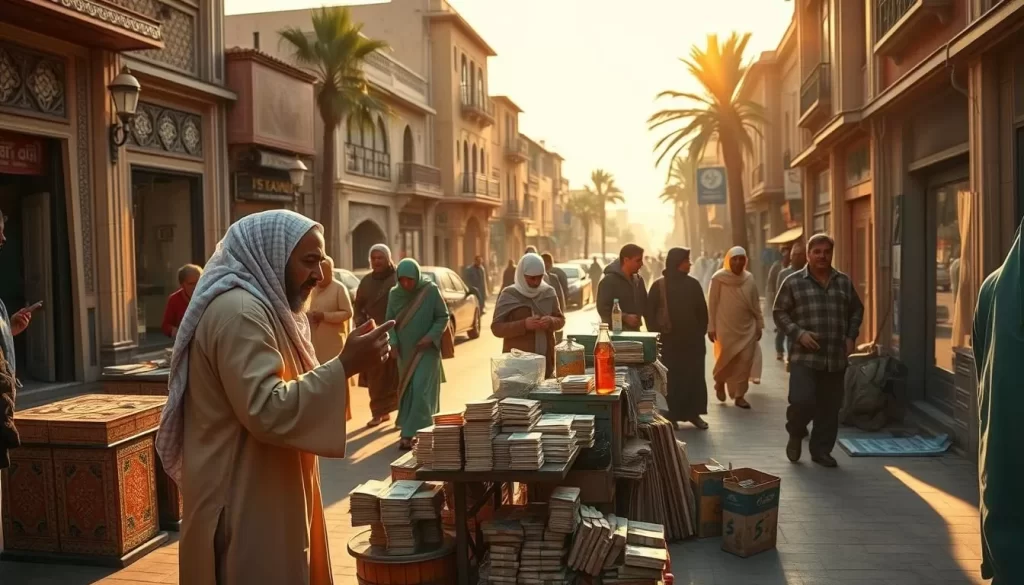
One of the first things to consider is the time visit to a money changer. Early mornings or late afternoons are often less crowded, giving you more time to negotiate and verify rates. Avoid peak hours when distractions can lead to mistakes.
An experienced driver can be a valuable resource. They often know the best places to exchange money and can help you avoid scams. Ask your driver for recommendations, as they are familiar with local practices and can guide you to trusted changers.
When negotiating, stay alert and confident. Informal exchanges often involve haggling, so be prepared to walk away if the rate isn’t favorable. Always count your money carefully before leaving the counter. This simple step can prevent costly errors.
Here are some practical tips to ensure a safe and profitable exchange:
- Verify the legitimacy of the money changer by checking for a physical location and customer reviews.
- Carry small denominations to avoid drawing attention to large sums of cash.
- Use a trusted driver to guide you to reputable changers and ensure your safety.
- Double-check exchange rates using online tools or apps for accuracy.
By following these strategies, you can navigate informal exchanges with confidence. Whether you’re saving money or avoiding scams, being prepared is key to a successful time visit.
For more insights into managing your finances abroad, check out this guide on Iraq’s investment climate. It provides valuable information on navigating the local economy and making informed financial decisions.
| Tip | Details |
|---|---|
| Timing | Visit early or late to avoid crowds and ensure better rates. |
| Driver Guidance | Ask your driver for trusted money changer locations. |
| Negotiation | Be confident and ready to walk away if the rate isn’t favorable. |
| Verification | Count your money carefully and use online tools to check rates. |
Practical Guide to Mobile Payments and Digital Transactions in Iraq
The way you handle money during your travels can significantly impact your overall experience. In Iraq, the rise of mobile payments and digital transactions is transforming how you manage your finances. This shift is making your trip smoother and more efficient.
Technology is reshaping banking services and payment methods across the region. Over 2.8 billion mobile wallets were in use globally by the end of 2020, and this number is projected to reach 4.8 billion by 2025. In Iraq, this trend is gaining momentum, offering new tools for travelers.
Emerging Tech Trends in Iraqi Banking
Digital tools and apps are becoming essential for modern travelers. QR code payments, for instance, are on the rise globally, with spending expected to hit $3 trillion by 2025. In Iraq, these technologies are making transactions faster and more secure.
Here are some practical tips to adopt mobile payment systems for a seamless travel experience:
- Use trusted apps for mobile payments to ensure security.
- Check for QR code payment options at local businesses.
- Keep your phone charged and carry a portable charger for uninterrupted access.
- Notify your bank of your travel plans to avoid any issues with transactions.
By integrating these digital tools into your trip, you can enjoy a more convenient and secure financial experience. The evolving landscape of mobile payments is not just a trend but a significant shift in how we manage money while traveling.
Conclusion
Your journey to explore this fascinating region can be both enriching and hassle-free with the right preparation. Understanding local financial systems and cultural nuances ensures a smooth experience. From managing cash to embracing digital payments, being informed helps you navigate confidently.
Whether you’re drawn to the bustling cities or serene landscapes, each destination offers unique experiences. Combining practical tips with cultural insights allows you to make the most of your trip. Remember, preparation is key to unlocking the full potential of your adventure.
As you plan your visit, consider the importance of economic stability in shaping the region’s future. With careful planning and an open mind, your journey will be both memorable and rewarding. Explore confidently and embrace all that awaits you.
The above is subject to change.
Check back often to TRAVEL.COM for the latest travel tips and deals.
